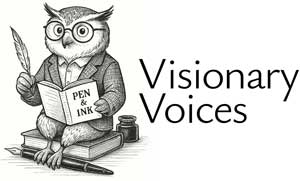As we move into 2025, nonprofits must evaluate their fundraising strategies to ensure resilience, adaptability, and alignment with evolving trends. Use these six questions to assess your organization’s readiness to thrive in the year ahead.

Does your organization currently accept non-cash asset gifts?
Non-cash asset giving is an untapped revenue stream for many nonprofits. Ensure your organization is actively promoting and accepting gifts such as stocks, cryptocurrency, real estate, Donor-Advised Funds (DAFs), and IRA rollovers. These assets often represent a larger capacity to give compared to cash donations and can be incorporated into your fundraising messaging, donor conversations, and website content.
Don’t just take my word for it. Fundraising expert and Texas Tech professor Dr. Russell James emphasizes in his work, Cash is Not King in Fundraising (PDF Download), that nonprofits accepting non-cash assets experience significant growth in donations. Leveraging non-cash gifts can be a transformative step for your organization’s growth and development.
Pro Tip: If your organization doesn’t currently accept these types of gifts, Every.org offers a free platform to get started.

Does your organization have a planned or legacy giving strategy in place?
The Great Wealth Transfer, estimated at $84 trillion over the coming decades, represents a game-changing opportunity for nonprofits. Baby Boomers, who control the majority of this wealth, are actively considering their legacies. Yet, many nonprofits overlook this potential and fail to invest in a planned giving strategy. As Founder and CEO of Plannedgiving.com Viken Mikaelian notes, “Research shows fundraisers who even have a minor focus on planned giving earn 50-100 percent more than those who do not.” Embracing planned giving strategies can provide a steady and impactful revenue stream for years to come.
Action Step: Promote legacy giving through your communication channels. Consider adding a dedicated legacy giving page to your website and including language about bequests, endowments, and other planned gifts in appeal letters and emails.

Is your fundraising strategy diversified?
Relying too heavily on one revenue stream—whether individual donors, corporate sponsors, foundations, or government grants—can leave your organization vulnerable to economic and political shifts. With a new presidential administration focusing on government efficiency, nonprofits must prepare for potential changes in government grant funding and reevaluate their fundraising strategies.
Strategy Tip: Explore ways to diversify income, such as launching peer-to-peer fundraising campaigns, building corporate partnerships, or investing in a major donor strategy. A diversified revenue mix ensures stability and flexibility, safeguarding your mission against unforeseen challenges.

Does your organization’s development team have a healthy retention rate?
High turnover in nonprofit fundraising teams—where the average tenure for a fundraiser is just 18 months—can disrupt donor relationships and derail campaigns. Burnout is often a significant factor. Michelle Flores Vyrn, co-founder of the Social Impact Staff Retention Project, highlights in Naming Incongruence in Nonprofit Work (PDF Download), “They’re not just raising funds. They are strategizing, marketing, managing events, and leading community engagement, all while meeting ambitious and moving revenue targets. These types of pressures lead to burnout, ethical compromises, and a disconnection from the missions that once inspired them.” Addressing these challenges can enhance team morale, improve fundraiser retention, and increase your organization’s overall productivity.
Retention Tips: Conduct regular check-ins with your development team to ensure they feel supported. Offer professional development stipends, create realistic workload expectations, and consider flexible work arrangements. Investing in your staff’s well-being is an investment in your organization’s success.

Does your organization utilize generative AI and/or AI tools?
Artificial intelligence (AI) has the potential to revolutionize nonprofit operations, from automating repetitive tasks to identifying donor trends and crafting personalized appeals. By streamlining workflows, AI can free up fundraisers to connect more authentically with donors and focus on high-impact priorities. However, many organizations remain uncertain about how to integrate AI effectively into their fundraising strategies.
Considerations: Start by creating an AI policy for your workplace that outlines how team members should use AI ethically and responsibly. Attend workshops or conferences to stay informed about emerging AI tools and best practices. By taking small but meaningful steps, your organization can utilize AI to grow your fundraising efforts.

Is your Board of Directors engaged and supportive of your fundraising efforts?
A strong and active Board of Directors can be your organization’s greatest asset in fundraising. However, if your board isn’t engaged or lacks clarity on their fundraising responsibilities, it may be time to reset expectations.
Engagement Tip: Equip your board with the tools and training they need to succeed in fundraising. This might include providing teed up outreach language or conducting relationship maps of your board’s networks. A well-equipped board can champion fundraising efforts and inspire a culture of philanthropy throughout your organization.
Conclusion
As you prepare for 2025, these six questions can help you identify gaps, strengthen your strategies, and position your nonprofit for long-term success. Take the time to assess, adjust, and act now to ensure your fundraising strategies are sustainable, impactful, and ready to meet the challenges of the year ahead.







Excellent checklist for all NPOs. An advisable folliw-up reminder to the board and staff: understand and employ donor-centric best practices! Well done!
Thank you, Joe! I really appreciate the thoughtful reminder about ensuring both the board and staff understand and adopt donor-centric best practices. That is so important for building strong donor relationships and driving your nonprofit’s mission forward. Thanks for sharing your insights!
I think all 6 questions are excellent. It’s always important to diversify in dealing with Financials and I believe you really hit it out of the park with this well diversified list!
Most people know that diversifying is good for Financials, I believe these 6 questions are very diverse. I think you hit it out of the park with these great questions!